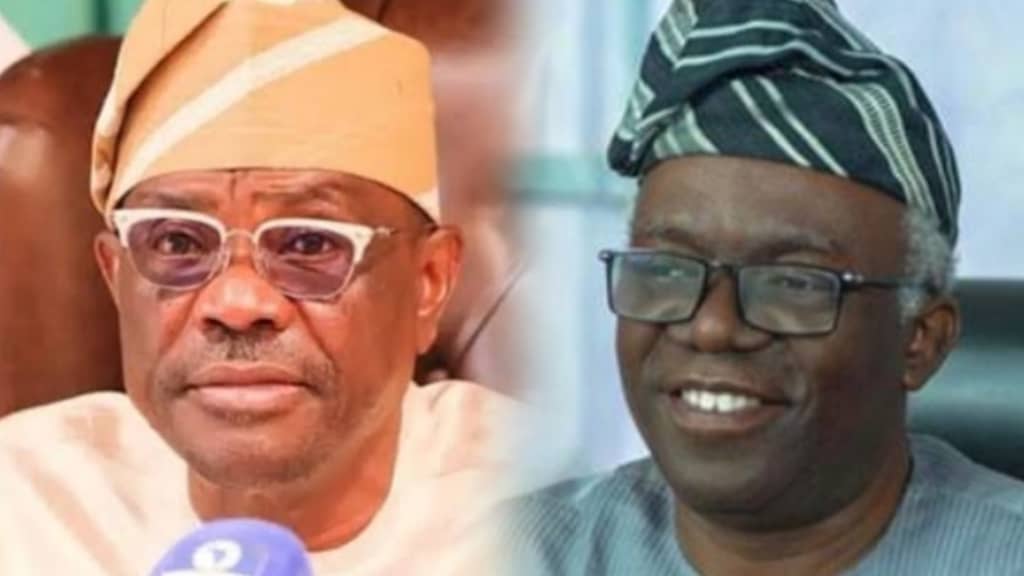Nigeria
Judges’ Houses: Wike Fires Back at Falana, Says Criticism Is Misplaced

FCT Minister Nyesom Wike defends his decision to provide houses for judges, responding to legal icon Femi Falana’s critique as misinformed.
On Friday, FCT Minister Nyesom Wike stated that human rights lawyer Femi Falana’s claim regarding the unconstitutionality of providing housing and cars to judges was incorrect. According to Wike, the Senior Advocate of Nigeria (SAN) misunderstood the situation.
In a statement released by his media aide Lere Olayinka, the minister asserted that it was perfectly acceptable for the Federal Government to provide housing for judges and officials from other branches of government.
In justifying the government’s actions, Olayinka stated that the separation of powers is not absolute.
Olayinka, who serves as Wike’s Senior Special Assistant on Public Communications and New Media, contended that Falana’s stance was clearly incorrect and merely an expression of emotions and sentiments against the FCT Minister.
He questioned whether there would still be a need for land from the FCT Ministry if the judiciary were to construct the houses. Additionally, he asked if allocating lands wasn’t sufficient when it comes to exerting influence over the judiciary.
Additionally, the funds needed to construct the houses must still be approved by the National Assembly, which consists of politicians who may have ongoing cases before judges. Should we also suggest that submitting the judiciary’s budget for approval by either the National or State House of Assembly might sway judges if they handle cases involving these lawmakers?
Police and other security agencies offer protection for judges, who also handle court cases. Is Uncle Femi Falana suggesting that these agencies might sway the judges?
READ ALSO: Wike Dismisses Concerns Over Potential Defection to APC
Anti-corruption agencies, such as the Economic and Financial Crimes Commission (EFCC) and the Independent Corrupt Practices and Other Related Offenses Commission (ICPC), are tasked with investigating and prosecuting judges. Does Oga Femi Falana believe that these entities should refrain from handling cases of alleged judicial corruption to prevent any potential influence on the judiciary?
Perhaps judges should consider establishing their own hospitals to ensure that doctors, particularly those in public institutions, do not influence them. After all, medical practitioners also have cases that appear before the courts.
Perhaps judges should consider distancing themselves from friends and family members. Operating in seclusion might help prevent external influences, or they could establish their own isolated environment to remain unaffected by others.
Olayinka encouraged Falana to focus more on ensuring that the judges feel comfortable and secure in performing their duties, rather than spending energy critiquing the executive branch for carrying out its responsibilities.
He highlighted that “even in the United States, where Supreme Court justices are often perceived as being affiliated with political parties, they still make decisions based on what is right.”
